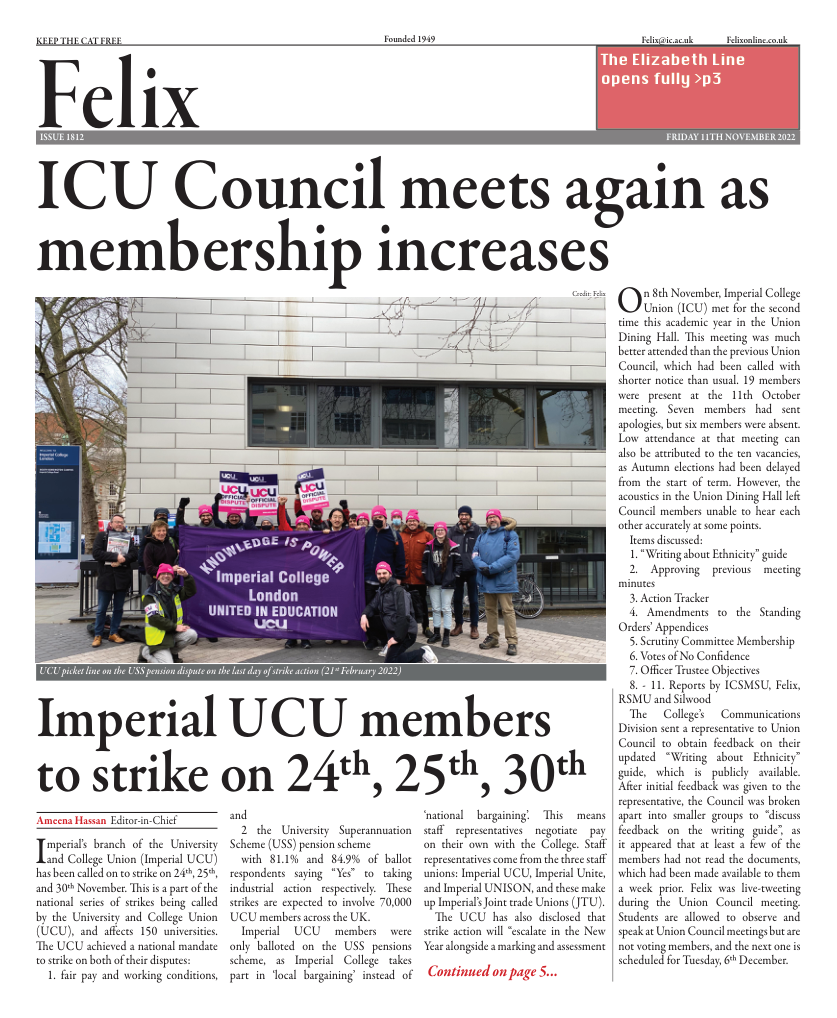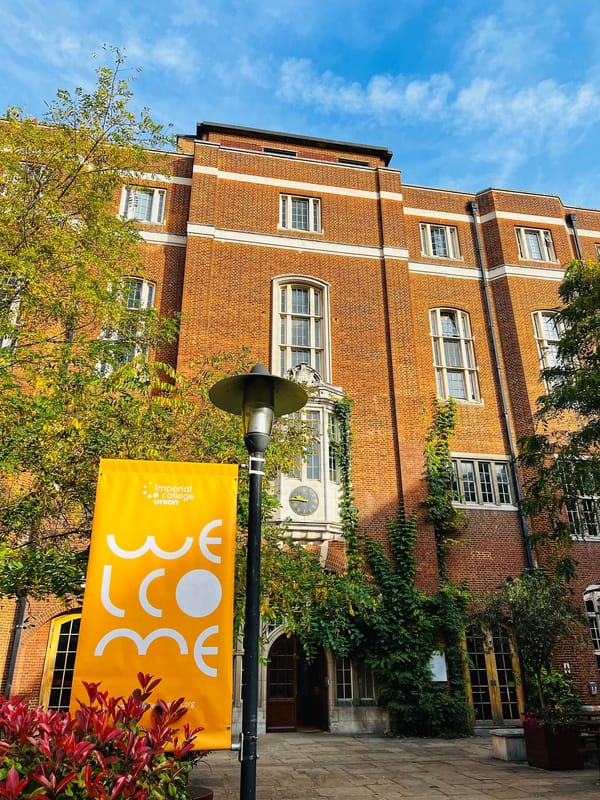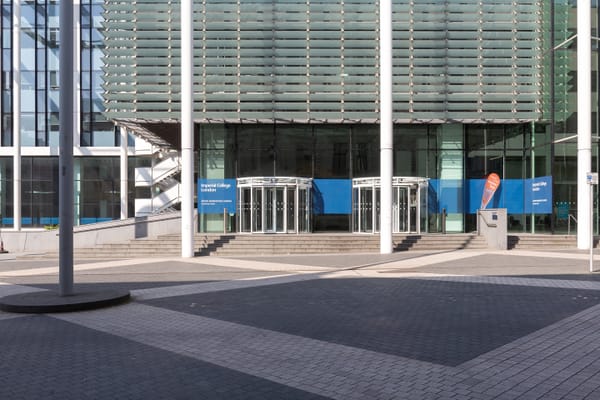TfL expands Elizabeth line operations
Bond Street station opens as Elizabeth line services enhanced
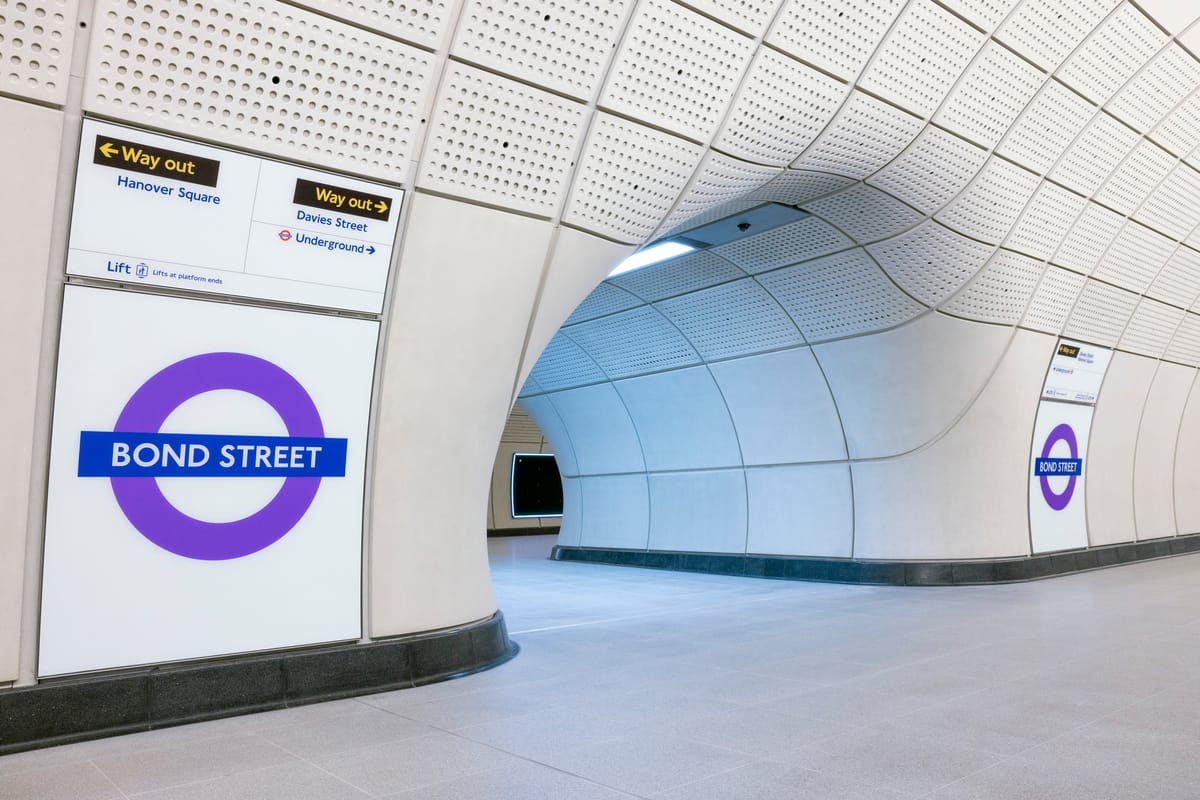
With the busy Christmas season approaching, TfL has expanded its Elizabeth line operations through the opening of Bond Street Station and increasing the number of running trains.
The Elizabeth has been plagued by delays and overruns since its inception in 2001, under the name Cross London Rail Links. The concept of the line was not a new one, as the idea of linking Paddington and Liverpool Street was first discussed in 1941. However, approval for the current form of the railway was finally given through the Crossrail Act in 2008. Construction started in 2009, with an initial budget of £14.8 billion and a targeted opening date of December 2018. These were to prove optimistic; the budget was exceeded by more than £3 billion and the opening date was continuously pushed back, first to 2019, then 2021, and finally a 2022 opening date was achieved through the partial opening in May.
The Elizabeth line was launched with great fanfare in May 2022. London’s newest line saw visits from dignitaries including the eponymous Monarch, but it was not a true opening. The railway had been designed to run a service every 150 seconds, linking destinations in the West directly to those in the East, via six stations under Central London. Instead of this, the service in May was effectively three separate lines – one running west of Paddington, one running north-east from Liverpool Street, and one running through Central London out to the east. The frequency of trains was half of the planned rate, and a key interchange – Bond Street Station – was not open to passengers.
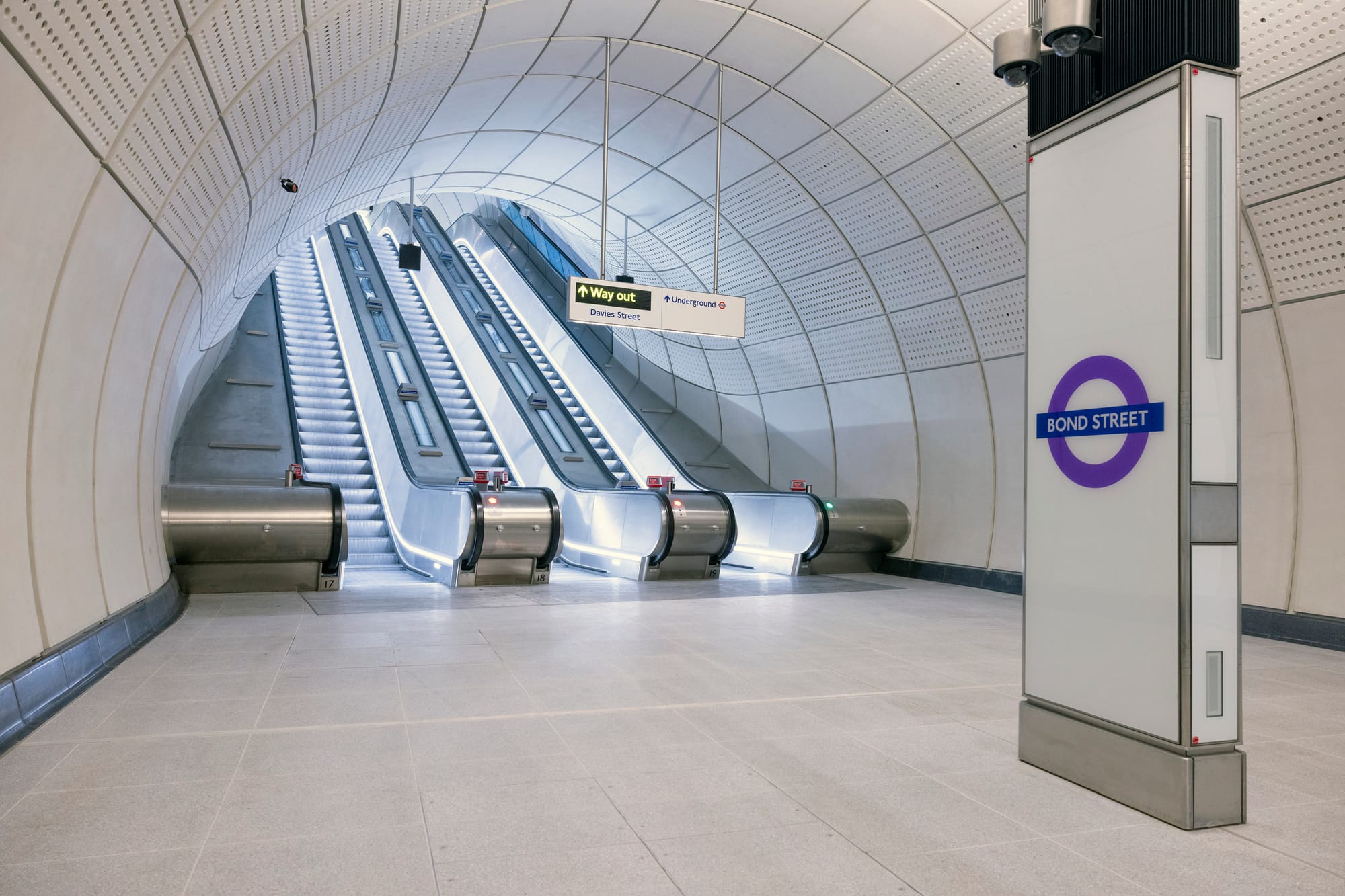
Bond Street has been a particularly challenging problem for the opening of the Elizabeth line. The station was used as the exit point for the Tunnel Boring Machines (TBMs) that were digging through Central London. Work on creating the station was unable to start until tunnelling had been completed and the TBMs extracted. Due to the inevitable delays in tunnelling work, this was running behind schedule. Once work had begun, a geographic fault was found beneath the station, which resulted in the foundation design requiring significant changes. These delays had taken construction into the start of 2020, which then had to stop completely with the first coronavirus lockdowns. Restarting work on a site which had effectively been abandoned delayed construction even further, and coronavirus restrictions hampered productivity. Due to these complications, Bond Street Station alone was responsible for £550 million of the overspend on the entire project.
TfL has finally opened Bond Street to the public, offering another route to one of the busiest shopping regions in Europe ahead of the Christmas season. As of last week, the routes the Elizabeth Line is offering have been extended significantly, with trains running through from west of Paddington – including Heathrow – into Central London and Canary Wharf, and trains from North East London also able to run into Central London. The frequency has also been increased significantly, with trains every three minutes at peak times, approaching the number promised at the start of the project. In the six months since its partial opening, 60 million journeys have been taken on the Elizabeth line. With the latest expansion in service, this number is expected to increase significantly.
While full operation (every train able to run through the full length of the route and the expected service frequencies reached) is not planned until May 2023, the service now is finally delivering on the mobility promises made during its inception.

